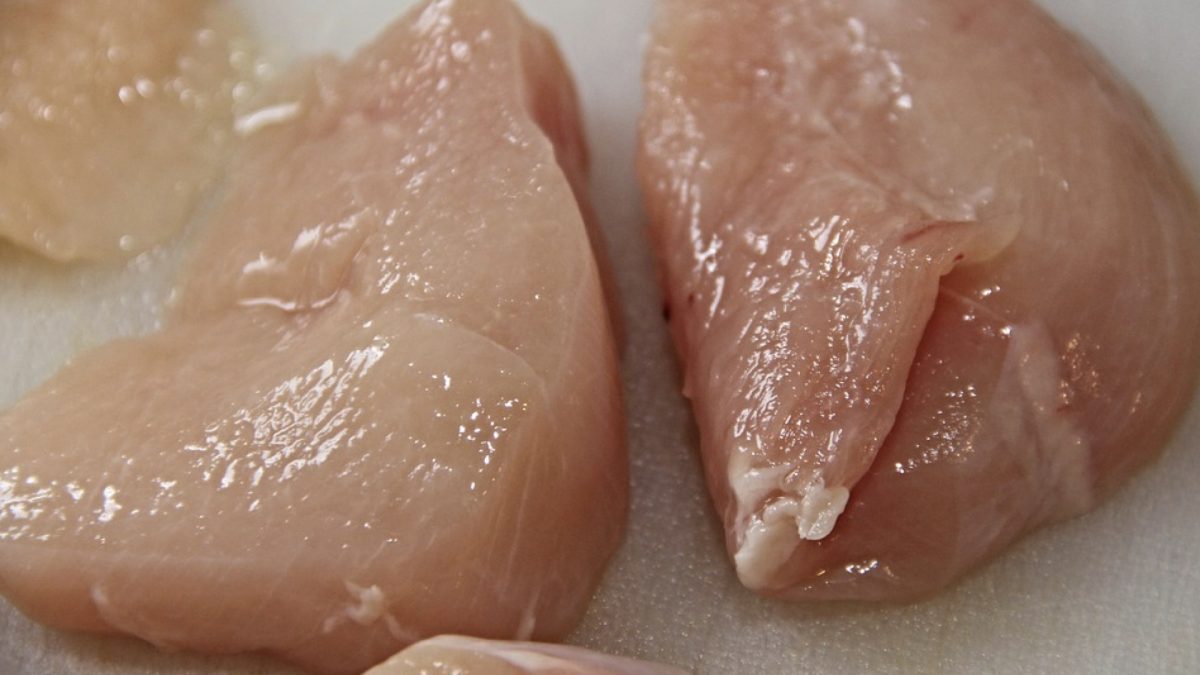Chronic kidney disease is a major public health problem affecting about one in eight Americans, increasing the risks of disease and death even among those with only mild decreases in kidney function. Low-cost, low-risk preventive strategies that anyone can do are needed to address the epidemic of kidney disease. I discuss some of these in my video Protein Source: An Acid Test for Kidney Function.
Diet plays a role in kidney function decline. “Specifically, diets higher in animal protein, animal fat, and cholesterol” may be associated with protein leakage into the urine, which is a sign of kidney damage, and, generally, “diets higher in fruits, vegetables, and whole grains, but lower in meat and sweets, may be protective” against kidney function decline.
In comparison to the diet eaten by our ancient ancestors, not only are we eating more saturated fat, sugar, and salt, we now also eat an acid-producing diet, as opposed to a base-producing, or alkaline, diet. Ancestral human diets were largely plant based and, as such, produced more base than acid.
“Dietary acid load (DAL) is determined by the balance of acid-inducing foods which is rich in animal proteins (such as meats, eggs, and cheese)” and offset by base-inducing foods, such as fruits and vegetables. In a national survey of 12,000 American adults, DAL was associated with kidney damage among U.S. adults.
Acid-inducing diets are believed to affect the kidney through tubular toxicity, damage to the tiny, delicate, urine-making tubes in the kidney via increased ammonia production. Ammonia is a base, so the kidney creates it to buffer the acid from the food we eat. This is beneficial in the short term to get rid of the acid; however, in the long term, all that extra ammonia in our kidneys day in and day out seems to exert toxic effects.
Our kidney function tends to decline progressively after our 30s, and, by our 80s, our kidney capacity may be down to half. “Perhaps, the so-called age-related decline in renal function is a result of damage induced by ammonia overproduction.” That’s just one theory, though. The acidic pH may increase the production of free radicals and damage the kidney that way, or add to scarring.
Not only is protein derived from plant foods accompanied by antioxidants that can fight the free radicals, but plant protein is also less acid-forming in the first place because it tends to have fewer sulfur-containing amino acids. One of the reasons plant foods tend to be less acid-forming than animal foods is because acid is produced by the sulfur in the protein, and there’s less in plant proteins.
“[T]he more important determinant of the effect of dietary protein on nephropathy [kidney disease] progression is the quality of the ingested protein (i.e., whether it induces acid-production like most animal protein or base production like most fruit and vegetable protein) when ingested rather than the quantity of protein ingested.”
American diets “are largely acid-producing because they are deficient in fruits and vegetables and contain large amounts of animal products,” so changing from a standard American diet to a vegan diet may improve acidosis in patients with chronic kidney disease. Under normal circumstances, a vegetarian diet is alkalinizing, whereas a nonvegetarian diet leads to an acid load. This was true even of vegetarians who consumed processed meat replacements such as veggie burgers.
Plant-based diets have been prescribed for decades for those with chronic kidney failure. They contain no animal fat, no cholesterol, and less acid formation, and help to lower blood pressure. Indeed, if you compare the kidney function of vegans with vegetarians and omnivores, the most plant-based diet was most associated with improved parameters for the prevention of degenerative kidney decline.
I was surprised to learn how powerfully diet can affect kidney function and structure. My kidney videos include:
- Which Type of Protein Is Better for Our Kidneys?
- How to Prevent Kidney Stones with Diet
- Can Diet Protect Against Kidney Cancer?
- Treating Chronic Kidney Disease with Food
And be sure to check out my overview video, How Not to Die from Kidney Disease.
Aren’t some plant foods acidic, though? Check out the chart in my video, How to Treat Kidney Stones With Diet.
Is there any way to test to see how acid-forming your diet is? Yes—and it’s fun! See Testing Your Diet With Pee and Purple Cabbage.
In health,
Michael Greger, M.D.
PS: If you haven’t yet, you can subscribe to my free videos here and watch my live, year-in-review presentations:
- 2012: Uprooting the Leading Causes of Death
- 2013: More Than an Apple a Day
- 2014: From Table to Able: Combating Disabling Diseases with Food
- 2015: Food as Medicine: Preventing and Treating the Most Dreaded Diseases with Diet
- 2016: How Not To Die: The Role of Diet in Preventing, Arresting, and Reversing Our Top 15 Killers
